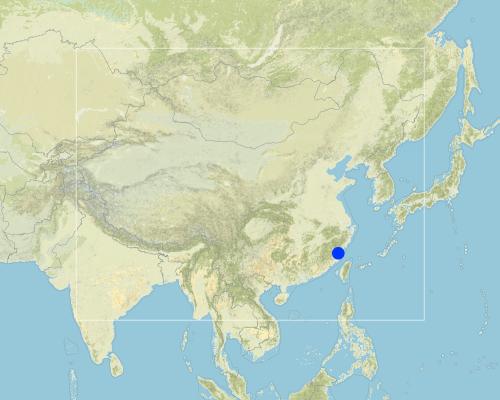Horsetail Beefwood (Casuarina) Windbreak along Seaside [中国]
- 创建:
- 更新:
- 编制者: Unknown User
- 编辑者: –
- 审查者: David Streiff
Seaside Shelter Belt of Horsetail Beefwood' test
technologies_960 - 中国
查看章节
全部展开 全部收起1. 一般信息
1.3 关于使用通过WOCAT记录的数据的条件
(现场)数据是什么时候汇编的?:
26/12/1997
编制者和关键资源人员接受有关使用通过WOCAT记录数据的条件。:
是
1.5 请参阅有关SLM方法的问卷
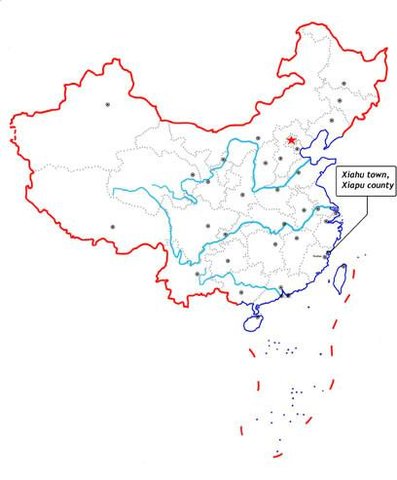
Planting Horsetail Beefwood (Casuarina) As Windbreak Along Seaside [中国]
Planting Horsetail Beefwood along seaside to protect cropland from sea wind erosion and typhoon destroy.
- 编制者: Unknown User
2. SLM技术的说明
2.1 技术简介
技术定义:
Planting Horsetail Beefwood as a shelter belt along seaside to prevent serious wind and water erosion/destroy of the cropland.
2.2 技术的详细说明
说明:
Horsetail Beefwood windbreak along seaside is applied to prevent serious wind and water erosion/destroy of the cropland. It is planted as a shelter belt in the cropland. Horsetail Beefwood is a perennial tree growing in sub-tropic and tropic climate. Its timber can be used in industry and fuel timber. It is easy to maintain.
2.3 技术照片
2.5 已应用该技术的、本评估所涵盖的国家/地区/地点
国家:
中国
区域/州/省:
Ningde Prefecture
Map
×2.6 实施日期
如果不知道确切的年份,请说明大概的日期:
- 不到10年前(最近)
2.7 技术介绍
详细说明该技术是如何引入的:
- 通过项目/外部干预
注释(项目类型等):
Tai Wan
3. SLM技术的分类
3.1 该技术的主要目的
- 减少、预防、恢复土地退化
3.2 应用该技术的当前土地利用类型
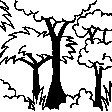
森林/林地
产品和服务:
- 木材
- 水果和坚果
- 其它森林产品
- 自然保持/保护
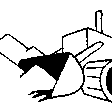
矿山、采掘业
具体说明:
causing damage of vegetation
注释:
Grazingland comments: Household grazing tends to standardize and stall feeding.
Problems / comments regarding forest use: The forest cover percent increase little, strenghtening the tree planting.
Forest products and services: timber, fruits and nuts, other forest products / uses (honey, medical, etc.), nature conservation / protection
Type of cropping system and major crops comments: Rice, cotton
Type of grazing system comments: Household grazing tends to standardize and stall feeding.
Constraints of recreation
Constraints of Urban: Urban construction does not coordinate with environmental protection
Constraints of Industrial/mining: causing damage of vegetation
Constraints of Wilderness
3.3 有关土地利用的更多信息
该技术所应用土地的供水:
- 雨养
每年的生长季节数:
- 1
具体说明:
Longest growing period in days: 365Longest growing period from month to month: Jan - Dec
3.4 该技术所属的SLM组
- 防风林/防护林带
3.5 技术传播
具体说明该技术的分布:
- 均匀地分布在一个区域
如果该技术均匀地分布在一个区域上,请注明覆盖的大致区域。:
- 1-10 平方千米
注释:
Total area covered by the SLM Technology is 2 m2.
It is a vegetative measure applied in the cropland along seaside and has marked effect on prevent wind erosion and destroy in the cropland.
3.6 包含该技术的可持续土地管理措施
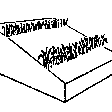
植物措施
- V1:乔木和灌木覆盖层
3.7 该技术强调的主要土地退化类型

土壤水蚀
- Wt:表土流失/地表侵蚀
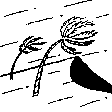
土壤风蚀
- Et:表土流失
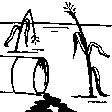
化学性土壤退化
- Cn:肥力下降和有机质含量下降(非侵蚀所致)
注释:
Main type of degradation addressed: Et: loss of topsoil
Secondary types of degradation addressed: Wt: loss of topsoil / surface erosion, Cn: fertility decline and reduced organic matter content
Main causes of degradation: deforestation / removal of natural vegetation (incl. forest fires), other natural causes (avalanches, volcanic eruptions, mud flows, highly susceptible natural resources, extreme topography, etc.) specify, lack of knowledge
4. 技术规范、实施活动、投入和成本
4.2 技术规范/技术图纸说明
Technical knowledge required for field staff / advisors: moderate
Technical knowledge required for land users: low
Main technical functions: Wind-break
Secondary technical functions: control of raindrop splash, control of dispersed runoff: retain / trap, increase of surface roughness, increase / maintain water stored in soil
Mulching
Material/ species: Casuarina braches
Quantity/ density: 80%
Vegetative measure: Vegetative material: T : trees / shrubs
Vegetative measure: Vegetative material: T : trees / shrubs
Vegetative measure: Vegetative material: T : trees / shrubs
Vegetative measure: Vegetative material: T : trees / shrubs
Trees/ shrubs species: Cash & lots of shrubs
Slope (which determines the spacing indicated above): 1.00%
If the original slope has changed as a result of the Technology, the slope today is (see figure below): 0.00%
Gradient along the rows / strips: 0.00%
4.3 有关投入和成本计算的一般信息
具体说明成本计算所用货币:
- 美元
注明雇用劳工的每日平均工资成本:
3.50
4.4 技术建立活动
| 活动 | 措施类型 | 时间 | |
|---|---|---|---|
| 1. | Planting trees(strip) | 植物性的 | Spring |
4.5 技术建立所需要的费用和投入
注释:
Duration of establishment phase: 36 month(s)
4.6 维护/经常性活动
| 活动 | 措施类型 | 时间/频率 | |
|---|---|---|---|
| 1. | minimun tillage | 农业学的 | spring,summer / twice a year |
| 2. | Planting SWC forest | 植物性的 | Spring /once a year |
| 3. | Supplementing trees | 植物性的 | Spring /once a year |
5. 自然和人文环境
5.1 气候
年降雨量
- < 250毫米
- 251-500毫米
- 501-750毫米
- 751-1,000毫米
- 1,001-1,500毫米
- 1,501-2,000毫米
- 2,001-3,000毫米
- 3,001-4,000毫米
- > 4,000毫米
农业气候带
- 潮湿的
5.2 地形
平均坡度:
- 水平(0-2%)
- 缓降(3-5%)
- 平缓(6-10%)
- 滚坡(11-15%)
- 崎岖(16-30%)
- 陡峭(31-60%)
- 非常陡峭(>60%)
地形:
- 高原/平原
- 山脊
- 山坡
- 山地斜坡
- 麓坡
- 谷底
垂直分布带:
- 0-100 m a.s.l.
- 101-500 m a.s.l.
- 501-1,000 m a.s.l.
- 1,001-1,500 m a.s.l.
- 1,501-2,000 m a.s.l.
- 2,001-2,500 m a.s.l.
- 2,501-3,000 m a.s.l.
- 3,001-4,000 m a.s.l.
- > 4,000 m a.s.l.
关于地形的注释和进一步规范:
Landforms plateau/plains: plain of seaside
Slopes on average flat: 1.0 - 1.5%
5.3 土壤
平均土层深度:
- 非常浅(0-20厘米)
- 浅(21-50厘米)
- 中等深度(51-80厘米)
- 深(81-120厘米)
- 非常深(> 120厘米)
土壤质地(表土):
- 粗粒/轻(砂质)
- 中粒(壤土、粉土)
表土有机质:
- 低(<1%)
如有可能,附上完整的土壤描述或具体说明可用的信息,例如土壤类型、土壤酸碱度、阳离子交换能力、氮、盐度等。:
Soil fertility: low
Soil drainage / infiltration: good
Soil water storage capacity: low
5.6 应用该技术的土地使用者的特征
非农收入:
- 收入的10-50%
相对财富水平:
- 平均水平
- 丰富
机械化水平:
- 手工作业
- 畜力牵引
说明土地使用者的其他有关特征:
Population density: 200-500 persons/km2
Annual population growth: < 0.5%
2% of the land users are very rich and own 10% of the land.
10% of the land users are rich and own 8% of the land.
85% of the land users are average wealthy and own 80% of the land.
3% of the land users are poor and own 2% of the land.
Off-farm income specification: The land users who adopt the SWC can get much more subsidies from government or projects and less loss caused by damage of the sea wind or typhoon than those who take no SWC technology.
5.8 土地所有权、土地使用权和水使用权
土地所有权:
- 州
- 团体
6. 影响和结论性说明
6.1 该技术的现场影响
生态影响
水循环/径流
地表径流
SLM之前的数量:
7
SLM之后的数量:
6
土壤
土壤流失
SLM之前的数量:
260
SLM之后的数量:
200
6.4 成本效益分析
技术收益与技术建立成本相比如何(从土地使用者的角度看)?
短期回报:
轻度消极
长期回报:
稍微积极
技术收益与技术维护成本/经常性成本相比如何(从土地使用者的角度看)?
短期回报:
中性/平衡
长期回报:
非常积极
6.5 技术采用
如若可行,进行量化(住户数量和/或覆盖面积):
175 (around 50 percent of the area
在所有采用这项技术的人当中,有多少人是自发地采用该技术,即未获得任何物质奖励/付款?:
- 90-100%
注释:
80% of land user families have adopted the Technology with external material support
90 land user families have adopted the Technology with external material support
Comments on acceptance with external material support: survey results
85% of land user families have adopted the Technology without any external material support
85 land user families have adopted the Technology without any external material support
Comments on spontaneous adoption: survey results
There is a strong trend towards spontaneous adoption of the Technology
Comments on adoption trend: Low input but marked output.
链接和模块
全部展开 全部收起链接

Planting Horsetail Beefwood (Casuarina) As Windbreak Along Seaside [中国]
Planting Horsetail Beefwood along seaside to protect cropland from sea wind erosion and typhoon destroy.
- 编制者: Unknown User
模块
无模块


